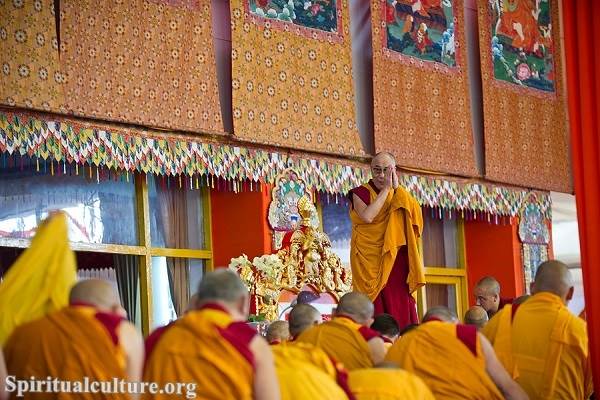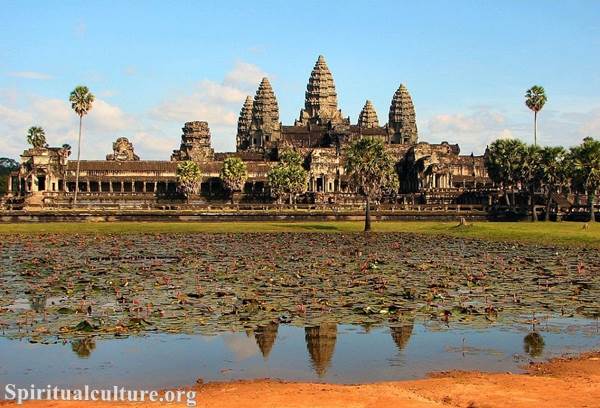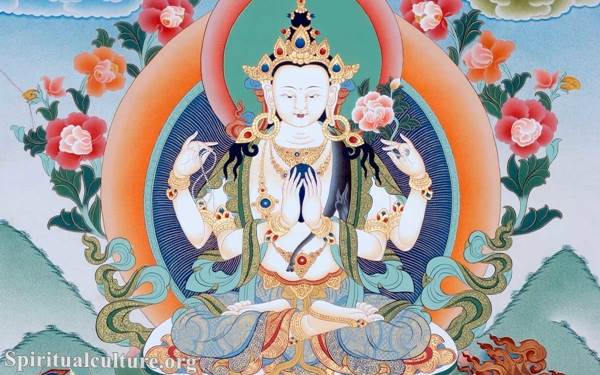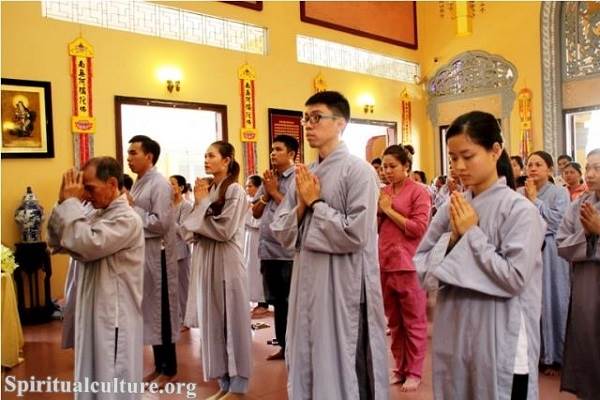This brief yet profound scripture offers a concise summary of the Buddha’s teachings, focusing on the nature of reality and the path to enlightenment.
The Heart Sutra’s name itself is intriguing and deeply symbolic. Also known as the Prajñāpāramitā Hṛdaya Sūtra in Sanskrit, it translates to “The Heart of the Perfection of Wisdom Sutra.” The word ‘heart’ here represents the essence of wisdom, and the sutra is seen as the heart or essence of the vast body of teachings in Mahayana Buddhism.
Mahayana Buddhism: A Brief Overview
Mahayana Buddhism, one of the major branches of Buddhism, emerged around the first century CE in India. It spread to various regions, including China, Japan, Korea, Vietnam, and Tibet, and has profoundly influenced their cultural and philosophical landscapes.
Distinct from Theravada Buddhism, Mahayana Buddhism emphasizes the ideal of the Bodhisattva, a person who seeks enlightenment not just for themselves but to liberate all sentient beings from suffering. This altruistic approach is a cornerstone of Mahayana thought and practice.
The Heart Sutra in Mahayana Buddhism
The Heart Sutra holds a special place in the Mahayana canon. Although it is one of the shorter sutras, its teachings are profound and far-reaching. The sutra presents the core doctrine of emptiness (śūnyatā), proposing that all phenomena are void of independent existence. This notion challenges our usual perceptions of reality and encourages us to see the interconnectedness of all things.
The sutra is often recited in monasteries and temples and is central to meditation practices. It is believed that recitation of the Heart Sutra can help to clear away delusion and bring about a deeper understanding of reality.
The sutra begins with the Bodhisattva Avalokiteshvara, who embodies compassion in Mahayana Buddhism. In deep meditation, Avalokiteshvara realizes that all five skandhas (components of human existence: form, sensation, perception, mental formations, and consciousness) are empty. This realization leads to the understanding that suffering and delusion are also empty, paving the way towards liberation.
The Heart Sutra’s Central Message
The Heart Sutra’s central message is that the ultimate reality is beyond words, concepts, and categories. It discourages clinging to fixed ideas and encourages a flexible and open mindset. The sutra suggests that by realizing the emptiness of all phenomena, we can free ourselves from the cycle of suffering (samsara) and attain Nirvana, the state of ultimate peace and liberation.
In the words of the Heart Sutra, “Form is emptiness, emptiness is form.” This paradoxical statement encapsulates the sutra’s central teaching that all things, though they appear solid and independent, are in fact interdependent and constantly changing.
In Conclusion
The Heart Sutra serves as a spiritual compass in the vast sea of Buddhist teachings. Its profound wisdom has resonated with countless practitioners over the centuries, guiding them on the path to enlightenment. As a cornerstone of Mahayana Buddhism, it continues to inspire and enlighten, offering a radical and transformative perspective on reality and our place within it.
Whether you are a seasoned practitioner of Buddhism or a curious seeker, the Heart Sutra invites you to explore the depths of your own heart and mind. Its teachings challenge us to see beyond the surface of our everyday experiences and to realize the interconnectedness and impermanence of all phenomena. In doing so, it offers a path towards freedom, compassion, and wisdom.





